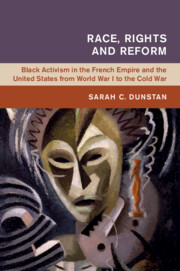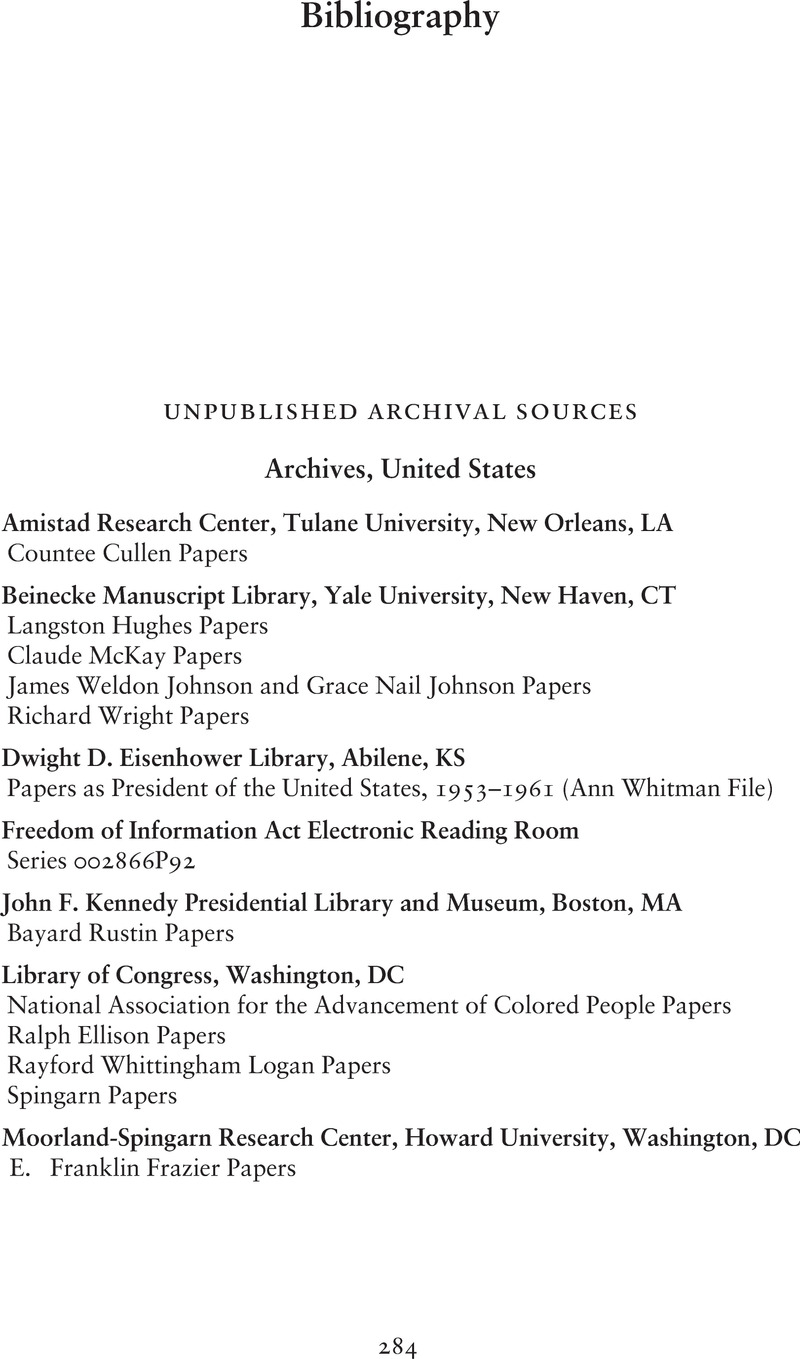 Race, Rights and Reform
Race, Rights and Reform Book contents
- Race, Rights and Reform
- Global and International History
- Race, Rights and Reform
- Copyright page
- Contents
- Acknowledgments
- Notes on Terminology and Language
- Introduction
- 1 Black Is a Country, n’est-ce pas? Race, Rights and Nation in the Wilsonian Moment
- 2 Anti-imperial Comrades: Black Radicalism and the Communist Possibility
- 3 La vogue nègre: Racial Renaissance at the Intersection of Republic, Empire and Democracy
- 4 Civilization’s Gone to Hell? Revolutionary Poetry, Humanism and the Crisis of Sovereignty
- 5 Give Me Liberty! Black Intellectual Struggles against Fascism in the Fight for Democracy
- 6 “A New Fascism, the American Brand”: Anti-communism, Anti-imperialism and the Struggle for the West
- 7 “The Sword of Damocles”: Présence Africaine and Decolonization in the Face of the Cold War
- Epilogue
- Bibliography
- Index
- References
Bibliography
Published online by Cambridge University Press: 01 March 2021
- Race, Rights and Reform
- Global and International History
- Race, Rights and Reform
- Copyright page
- Contents
- Acknowledgments
- Notes on Terminology and Language
- Introduction
- 1 Black Is a Country, n’est-ce pas? Race, Rights and Nation in the Wilsonian Moment
- 2 Anti-imperial Comrades: Black Radicalism and the Communist Possibility
- 3 La vogue nègre: Racial Renaissance at the Intersection of Republic, Empire and Democracy
- 4 Civilization’s Gone to Hell? Revolutionary Poetry, Humanism and the Crisis of Sovereignty
- 5 Give Me Liberty! Black Intellectual Struggles against Fascism in the Fight for Democracy
- 6 “A New Fascism, the American Brand”: Anti-communism, Anti-imperialism and the Struggle for the West
- 7 “The Sword of Damocles”: Présence Africaine and Decolonization in the Face of the Cold War
- Epilogue
- Bibliography
- Index
- References
Summary

- Type
- Chapter
- Information
- Race, Rights and ReformBlack Activism in the French Empire and the United States from World War I to the Cold War, pp. 284 - 308Publisher: Cambridge University PressPrint publication year: 2021


